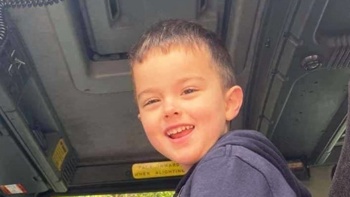A year ago, the top brass in the New Zealand Police were under extraordinary pressure.
They faced a crisis unlike they’d ever faced before. A crowd had gathered on the lawns of parliament, a varied rabble ranging from relatively harmless anti-mandate protestors to people making explicit death threats to journalists and MPs.
It’s amazing how quickly the tensions of that period seemed to dissipate from public consciousness after the occupation was cleared and the mandates were lifted, but I’m sure Police Commissioner Andrew Coster hasn’t forgotten the difficulty of those few weeks.
Fast-forward twelve months, and he and his staff face a different kind of crisis. Large parts of the North Island’s East Coast have been devastated by Cyclone Gabrielle, and fearful locals have reported gun violence, gang intimidation, theft, domestic violence and lawlessness.
For what it’s worth, I think history has vindicated Andrew Coster’s response to the parliamentary protests.
Just think back to February last year and the enormous pressure he faced from politicians, pundits, and the public, to send in his officers and break up the crowds with a maximum force response. People on the political left who supposedly value tolerance, peace, and understanding, were urging Police to go in and crack skulls. Figures on the top floors of the the Beehive who’d been central to Coster’s appointment as Commissioner undermined him by anonymously criticising his response in national media.
There is no doubt Police made mistakes with the protests. How protestors were initially allowed to set up camp, I’ll never know. Wellington Police were caught flat-footed and woefully unprepared. But once the occupation had been established, Police exercised incredible restraint. They carefully and deliberately developed a strategy and chose their moment to break up the crowds. The lasting images of protest violence are almost all of protestors attacking Police. I don’t think we appreciate just how bad it would have been for New Zealand if that was the other way around.
And still, there are lessons from last year’s event that may have gone unlearned.
The most obvious is that when the public feels unsafe, Police need to do everything to reassure them they’re actually doing something.
Police had 120 extra officers on the beat and the Eagle helicopter in the affected regions this week. But the security and comfort that might have given locals was undermined by Coster and the Prime Minister’s comments. It comes across as a pretty disingenuous move to try to minimise concerns about crime by stating that reported dishonesty offences are down, when in the same breath the public’s being reminded that literally thousands of people are still uncontactable.
Now, do those concerns about crime - whether anecdotal or otherwise - necessitate an immediate doubling of criminal sentences or soldiers on every street? No. But when
People’s lives have been torn out from underneath them, giving communities a sense of security should be a top priority.
The ultimate conclusion to last year’s protests was an enormous credit to the New Zealand Police. I think it was one of their greatest challenges in decades and despite all the pressure to use more extreme force, to go in and bludgeon the protestors, their measured response saved us from a far greater catastrophe. But if they learned anything from the occupation, it’s that in the immediacy of a crisis, the throes of uncertainty and tension, being seen by the public to be doing something is just as important as the actual doing.
Take your Radio, Podcasts and Music with you










